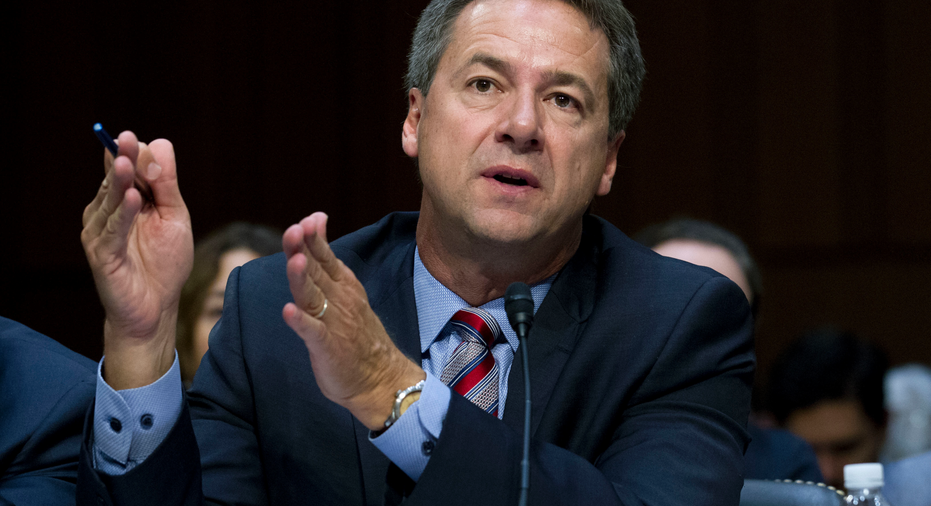Montana mandates 'net neutrality' for state contracts

BILLINGS, Mont. – Montana on Monday became the first state to bar telecommunications companies from receiving state contracts if they interfere with internet traffic or favor higher-paying sites or apps, under an order from Gov. Steve Bullock intended to protect so-called net neutrality.
The Democratic governor's order comes after the Federal Communications Commission last month repealed rules enacted in 2015 that had more tightly regulated companies such as AT&T and Verizon.
Commission members said the repeal was needed to ensure the government maintains a "light touch" in its oversight of the internet. But critics such as Bullock contend change will hurt consumers and make it harder for startup companies to enter the market.
"There has been a lot of talk around the country about how to respond to the recent decision," Bullock said in announcing his order before a group of computer science students in Helena. "It's time to actually do something about it."
Attorneys from more than 20 states and the District of Columbia have sued to block the repeal. State legislatures in New York, California and elsewhere have introduced bills promoting net neutrality, but Bullock is the first governor to taken action, according to the National Conference on State Legislatures.
His order applies to any company seeking a new state contract for telecommunications services after July 1. At that time, in order to receive a state contract companies must not "unreasonably interfere" with Montana internet users' ability to access the content of their choice. That includes giving preference to websites that pay more to internet providers.
Terms of existing telecommunications contracts with the state — worth about $50 million annually — would not be changed, Bullock spokeswoman Marissa Perry said. Among those are contracts with CenturyLink, Verizon, AT&T and Comcast, she said.
It was unclear from the order what would happen to companies with existing contracts. Bullock told the state Department of Administration to craft policies and guidance by March 1 to put the order into effect, and he invited governors and lawmakers across the United States to duplicate his action.
If other states follow suit, it could have a significant impact — both on large telecommunications companies with state contracts and smaller companies trying to get into the market, said Christopher Mitchell with the Institute for Local Self-Reliance, which supports net neutrality.
"States spend a lot of money on telecommunications contracts," Mitchell said. "We're seeing a number of states interested in doing something like this."
The National Cable and Telecommunications Association and USTelecom, which represent the broadband industry, said Congress and not individual states should step forward to craft permanent rules.
"We simply cannot have 50 different regulations governing our internet," said Sally Aman, US Telecom's senior vice president for public affairs.
It was not immediately clear if Bullock's order could face a legal challenge for being out of step with the FCC plan.
The FCC repeal — expected to go into effect this spring — pre-empted states and cities from imposing rules that contradict its own plan.
Perry said Bullock had latitude on the issue because his order applies only to state contracts and the terms by which Montana, as a consumer, wants to buy internet services
Aman said it was too soon to say if the broadband association would file a lawsuit over Bullock's order.
__
Follow Matthew Brown on Twitter at www.twitter.com/matthewbrownap .



















